Top 6 List of Shih Tzu Do's and Don'ts


Overview
Please note: AllShihTzu is reader-supported. Some links below are affiliate links, meaning we may earn a small commission on products through these, at no extra cost to you.
The Top 3 Do's for Shih Tzu Dogs
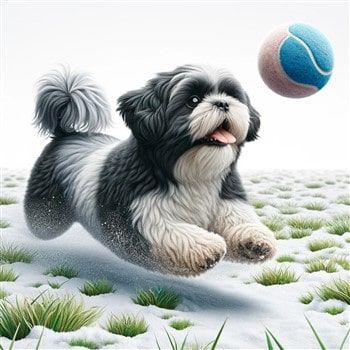
- Heart health
- Helps maintain proper muscle mass
- Keeps the metabolism functioning well
- Aids in good digestion and regular bowel movements
- Method of releasing pent-up energy in a healthy way that may otherwise manifest as barking or destructive chewing or, for some dogs, boredom and depression
- Helps desensitize a dog to stimuli to lessen response to triggers (over time)
- Allows a dog to engage their canine senses which often leads to higher levels of contentment for better emotional well-being
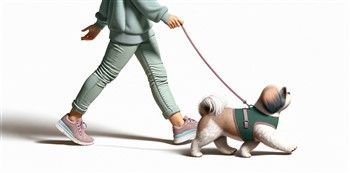
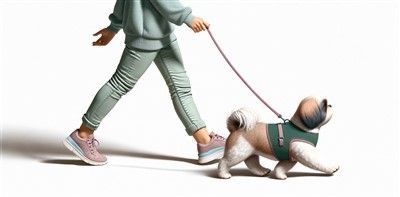
Harnesses are should be worn, not collars, to minimize breathing problems related to brachycephalic airway syndrome (BAS). The three main BAS issues in Shih Tzu dogs are:
- Collapsed trachea, where weak cartilage rings in the windpipe collapse, causing breathing difficulties and pain, typically starting around age 6 but can occur earlier.
- Elongated soft palate, a common condition due to their facial structure, where excessive growth of the soft palate obstructs the tracheal entrance.
- Stenotic nares (aka pinched nostrils), usually a minor but prevalent issue that restricts breathing due to small nostril openings.
A harness vest, unlike a collar, evenly distributes pressure across the chest, back, and shoulders, making it a much safer option. If you're looking for a harness, consider the EcoBark Harness Vest, which is made of breathable mesh, has an easy step-in design with an adjustable Velcro strap and comes in every size imaginable.
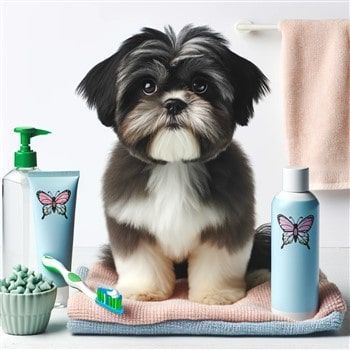
- Erosion to tooth enamel (the protective layer on teeth)
- Erosion under the gum line where damage occurs out-of-sight
- Halitosis (chronic bad breath)
- Gingivitis (a disease involving gum inflammation)
- Periodontal disease (infection that damages gums and the jawbone)
- Tooth decay that leads to tooth loss
- Bacterial infections (which can travel to the sinus passages or even lead to sepsis)
At-home, you can keep your Shih Tzu’s teeth clean by brushing them. Many dogs learn to tolerate this just fine. It’s important to use a canine paste that is non-foaming, fluoride-free, and meant to be swallowed. A kit like the Arm & Hammer for Pets Clinical Care Dental Kit is great; it contains 3 dental care items for effective cleaning: a toothbrush, a safe paste and a fingertip brush. This is also sized well for most Shih Tzu dogs.
The Top 3 Don'ts for Shih Tzu Dogs
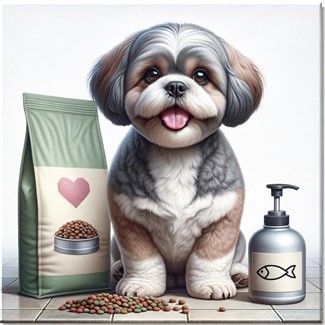
- Synthetic preservatives like ethoxyquin, BHA, BHT, and TBHQ, linked to cancer and nervous system issues.
- Artificial colorings such as Blue #2 (carcinogens), Red #40 (hyperactivity), Yellow #5 (behavior changes, allergies, banned in Europe), and Yellow #6 (allergies, tumors).
- Flavor enhancers like MSG (associated with allergic and neurological effects).
- Corn by-products (feed-grade coarse corn, not sweet corn).
- Bran, hulls, and remnants from corn, rice, oats, peanuts, soybeans (outer shells/kernels and processing by-products).
- Cereal by-products (processing leftovers).
- Wheat by-products.
- Animal/meat by-products (non-meat parts like lungs, brain, intestines; unspecified sources may include 4D livestock, roadkill, expired supermarket meat).

- Over 200 Americans in all 50 states have Chromium-6, a carcinogen, in their tap water (EPA confirmed).
- Around 6 million in the U.S. have PFASs (poly fluoroalkyl and perfluoroalkyl) in tap water, linked to immune suppression and hormonal issues.
- Other common contaminants include chlorite, chloramines, trichloroethane (1, 1,2), various pesticides, and traces of drugs, impacting at least 41 million Americans.
- High levels of heavy metals are widespread.
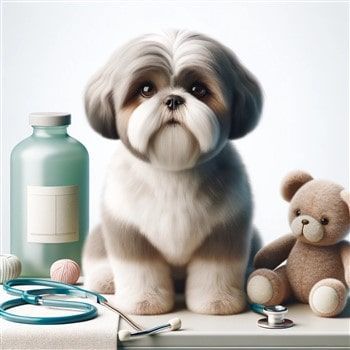
To Summarize:
- Do provide daily moderate exercise.
- Do have your Shih Tzu wear a harness when on a leash.
- Do stay on top of your Shih Tzu’s oral health.
- Don’t let your Shih Tzu eat artificial additives food or fillers.
- Don’t give unfiltered tap water.
- Don’t skip veterinary wellness checks.
You May Also Like:
Shih Tzu Physical Comfort: Addressing 5 Concerns - How to address sensitive skin, tummy troubles, cold intolerance, breathing discomfort, and mobility issues in Shih Tzu dogs. Help your Shih Tzu start feeling better today.
Lovely Fragrances for a Shih Tzu - In certain top-quality coat sprays, you'll find surprisingly pleasant scents that not only protect a Shih Tzu's skin and coat from irritants, allergens, UV rays, and more, but also help them smell delightful.
